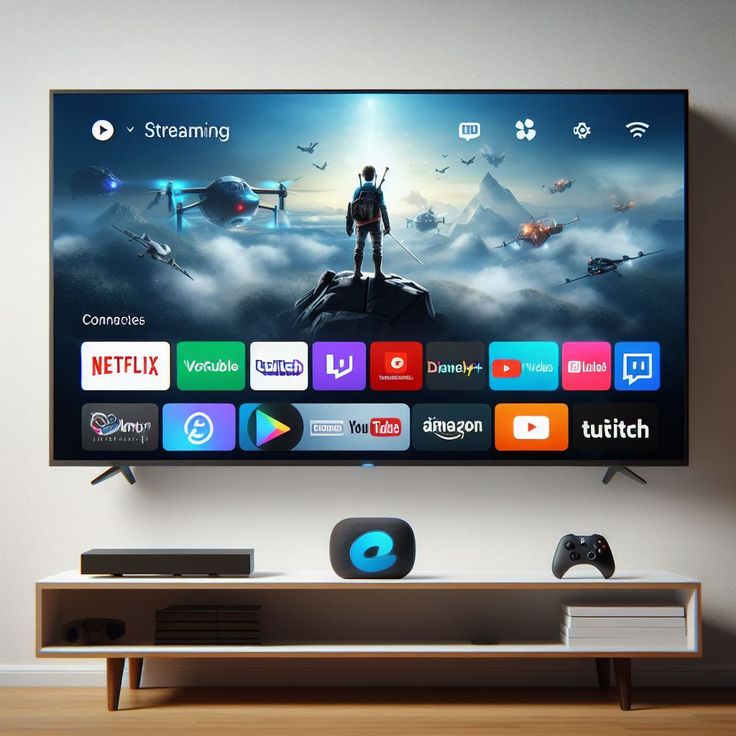Nollywood has experienced significant growth over the past few decades, becoming a cultural powerhouse both domestically and internationally.
A substantial part of this expansion can be attributed to the advent of streaming platforms, which have provided filmmakers with broader distribution channels and audiences with unprecedented access to Nigerian films.
However, recent developments indicate a potential retreat of major streaming services from the Nigerian market, prompting concerns about the future trajectory of Nollywood in their absence.
The Impact of Streaming Platforms in Nigeria
The introduction of global streaming giants like Netflix and Prime Video into Nigeria marked a transformative period for Nollywood. Netflix’s entry in 2020, followed by Prime Video in 2022, offered Nigerian filmmakers opportunities for larger budgets, elevated production quality, and access to international audiences.
This period saw Nollywood shedding its underdog status and emerging as a significant player on the global entertainment stage. Films such as “Lionheart” and “King of Boys” gained international acclaim, showcasing the industry’s potential to produce world-class content.
Streaming platforms also contributed to job creation within the industry, providing employment opportunities for actors, directors, writers, and technical crews. The increased demand for content led to a surge in productions, fostering a more dynamic and competitive environment that encouraged innovation and creativity.
What Can Cause Streaming Platforms to Leave Nigeria
Despite the initial successes, several challenges are emerging that may lead to the withdrawal of streaming platforms from Nigeria. Economic factors can play a significant role because the prevailing economic climate makes streaming subscriptions a luxury for many Nigerians, limiting the potential subscriber base. Additionally, rampant piracy continues to undermine profitability, as unauthorized distribution of content reduces the incentive for consumers to pay for legitimate access.
Internal industry issues may cause streaming platforms to leave Nigeria. Reports of mismanagement, gatekeeping, and financial improprieties are eroding trust between content creators and streaming platforms. Because there are instances of misappropriated funds and inflated budgets that failed to deliver quality content which have raised red flags, deterring further investment and collaboration.
What can be the implications if this happens
The departure of streaming giants presents several implications for Nollywood:
- Reduced international exposure: Without the global reach of platforms like Netflix and Prime Video, Nollywood risks losing the international audience it has cultivated. This could lead to a decline in global recognition and opportunities for cross-cultural collaborations.
- Decreased production budgets: The lavish budgets provided by streaming platforms enabled higher production values. Their absence may result in scaled-back productions, potentially affecting the quality and competitiveness of Nollywood films.
- Employment challenges: The industry’s workforce, which benefited from the increased demand for content, may face job insecurity as production scales down. This could lead to a talent drain, with skilled professionals seeking opportunities elsewhere.
- Distribution limitations: Streaming platforms offered an efficient distribution channel, ensuring films reached audiences promptly. Without them, filmmakers may struggle to distribute their work effectively, limiting audience reach and revenue potential.
What would be the way forward?

In light of these challenges, Nollywood must explore alternative distribution channels to sustain its growth and reach:
- Local streaming services: Platforms such as IrokoTV and IbakaTV have been instrumental in distributing Nollywood content. Strengthening these platforms through investment and improved infrastructure can provide a viable alternative to international streaming services. IrokoTV, for instance, has been a significant player in the digital distribution of Nollywood films, offering a vast library of content to a global audience. Similarly, IbakaTV has provided access to a wide range of Nollywood movies, contributing to the industry’s digital presence.
- Cinema distribution: Revitalizing the cinema culture in Nigeria can serve as an alternative distribution channel. However, this requires addressing challenges such as declining attendance, which has been exacerbated by the convenience of streaming services. Enhancing the cinematic experience and offering diverse content can attract audiences back to theaters. Recent reports indicate a 25.8% decline in cinema attendance in Nigeria, highlighting the need for innovative strategies to reinvigorate this distribution channel.
- Television broadcasts: Collaborating with local and international television networks to broadcast Nollywood films can expand reach, especially to audiences without internet access. This traditional medium remains a powerful tool for mass communication in Nigeria.
- Physical media: While digital distribution has become predominant, there remains a market for physical media, particularly in areas with limited internet connectivity. Producing DVDs and Blu-rays can cater to this segment, ensuring broader accessibility.
- Film festivals and international markets: Participating in film festivals and international markets can provide exposure and distribution deals. Showcasing films at these events can attract global distributors and open new revenue streams.






































Discussion about this post